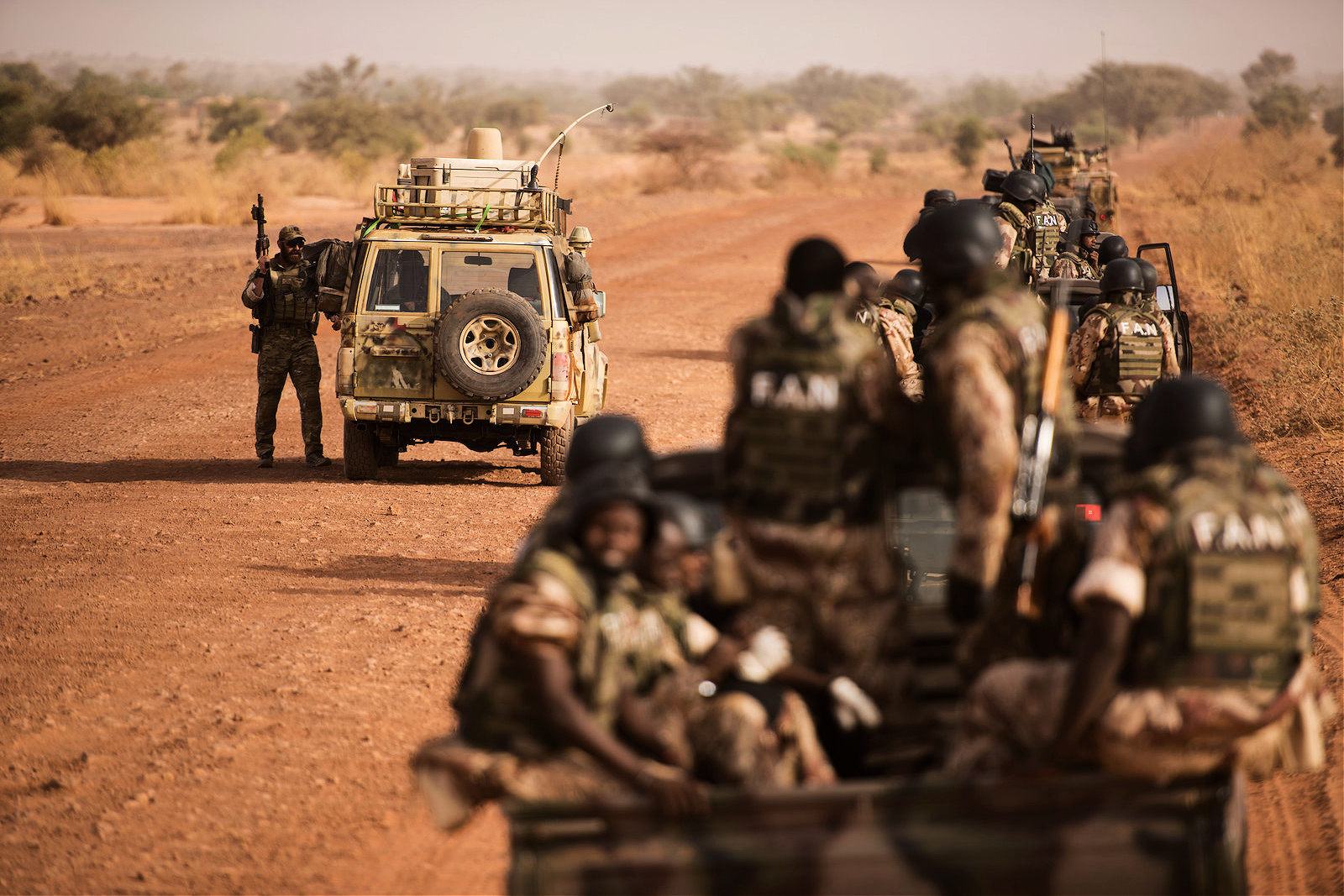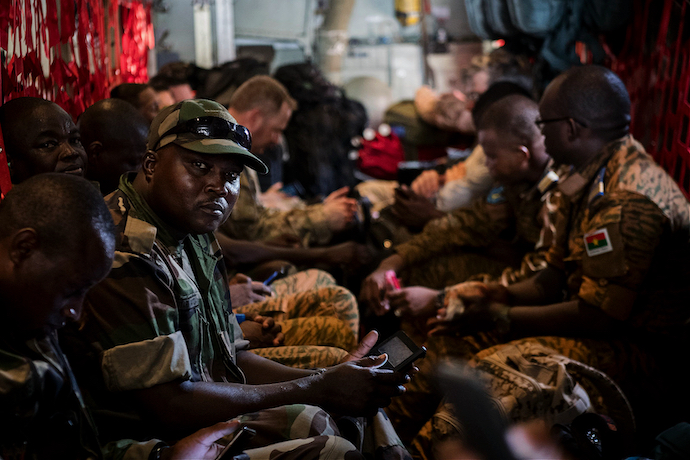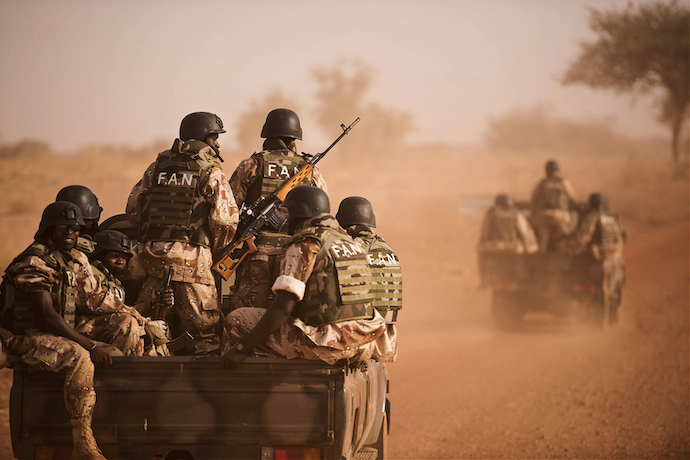
Following Coup, Niger Faces a Rocky Road
Since 2020, a deeply unsettling trend has emerged across a swath of countries in West Africa. Democratically elected governments in Burkina Faso, Chad, Guinea, Mali, and Sudan have been systematically toppled by military officers trained by Western powers. Remarkably, these coups didn’t initially provoke severe international repercussions. While coups in Mali and Burkina Faso largely escaped global scrutiny, the recent military overthrow in Niger has unleashed a political maelstrom, challenging both regional stability and the foundational principles of democracy within the West African context. Indeed, this coup in Niger serves as the sixth example of an unconstitutional regime change on the African continent.
Last week, the streets of Niamey, the country’s capital, swarmed with tens of thousands rallying in support of the coup that took place last month. This public display of approval came a day after Niger’s new military regime had unceremoniously given France’s ambassador just 48 hours to leave the country. Supporters contend that the majority of Niger’s citizens ardently back the coup leaders, who seized power by ousting President Mohamed Bazoum’s government on July 26.

Steering the ship of Niger’s current government is General Abdourahamane Tchiani, who has turned his ire towards France, the country’s former colonial ruler. Just this Friday, Niger’s foreign ministry announced a startling ultimatum: Sylvain Itté, the French ambassador, had 48 hours to exit the country. The ministry justified this demand by claiming that Itté had snubbed the new rulers and cited actions by the French government that were “contrary to the interests of Niger.” Both France and the European Union have flatly rejected this audacious demand, asserting that the coup leaders do not have the authority to make this request.
What distinguishes this coup from its predecessors is its potential to ripple through not just Niger but the entire West African region. Four of the countries destabilized by these coups—Burkina Faso, Chad, Guinea, Mali, and Niger—are integral members of the Economic Community of West African States (ECOWAS). Founded in 1975, this bloc consists of fifteen independent nations bound together with the aim of fostering economic integration and cooperation among member states.
Niger, a significant global producer of uranium, plays a pivotal role as a Western ally in combating Islamic extremism across the Sahel region. But even as ECOWAS contemplates a military intervention to reinstate President Bazoum, neighboring Burkina Faso and Mali have reiterated their support for Niger’s ruling military junta.
These developments raise acute questions about the vitality of democracy and the rule of law in Africa. The frequency of military interventions in the political landscape, while not necessarily causing immediate upheaval, raises red flags about the long-term stability of democratic processes in the region. The balance between political authority and military influence has become a crucial focal point for consideration.
Moreover, the unfolding situation in Niger serves as a stark reminder that even nations previously considered somewhat insulated from such political disruptions are by no means immune. The collective efforts of ECOWAS and the broader international community are now at a vital crossroads. They face the daunting task of not only returning to democratic norms but also installing robust mechanisms to prevent the recurrence of such destabilizing events. As the region grapples with these multifaceted challenges, the core principles of democracy, regional cooperation, and stability teeter precariously, awaiting decisions that will indubitably set the course for West Africa’s future.

ECOWAS, whose primary mission has always been to promote economic integration and development among its member states, aspires to create a common market, a customs union, and eventually, a single currency. In addition to these economic ambitions, ECOWAS has increasingly taken on a role in conflict resolution, peacekeeping, and security coordination.
Over the years, ECOWAS has distinguished itself by actively intervening in various conflicts and crises, such as the civil wars in Liberia and Sierra Leone. More recently, it has been involved in resolving the political crisis in Mali. Its strategies often encompass diplomatic negotiations, mediation efforts, and in some instances, military intervention aimed at restoring peace and stability.
Now, a new layer of complexity has been added to this already convoluted situation. Yevgeny Prigozhin, the leader of the enigmatic Wagner Group, was killed in a plane crash while returning to Moscow from St. Petersburg. This unexpected development has led to a whirlpool of speculation concerning the group’s potential involvement in supporting Niger’s military junta.
Unconfirmed reports suggest that Wagner was deeply embroiled in discussions with the junta, deliberating over a potential alliance to provide military support. Their apparent objective: to deter any potential military actions from the ECOWAS standby force. In response, the regional bloc had issued an ultimatum—either restore Bazoum to the presidency or brace for military intervention.
Shadowy reports continue to emerge, further muddying the waters around Prigozhin’s role in these volatile developments. He was reportedly seen in Niger, actively participating in negotiations with the ruling junta. These discussions were purportedly aimed at neutralizing the clear and present danger posed by ECOWAS, which had openly declared its readiness to use military force should diplomatic efforts to reinstate Bazoum prove unsuccessful.
The sudden loss of Prigozhin irrefutably alters the dynamics in Niger’s already complex political arena. As the crisis deepens, casting a dark cloud over the prospects for stability in Africa, the roles of international players—including the United States, France, and particularly Russia—in complicating the situation demand a cautious approach from analysts and policymakers alike.
Niger finds itself in a perilous position, with its complicated past and current instability serving as ominous indicators for an uncertain future. The country’s 25 million citizens undoubtedly deserve better—stability and an absence of violence. Without decisive intervention from foreign powers and a committed involvement by ECOWAS, Niger risks being ensnared in a cycle of conflict that could endure for decades.
